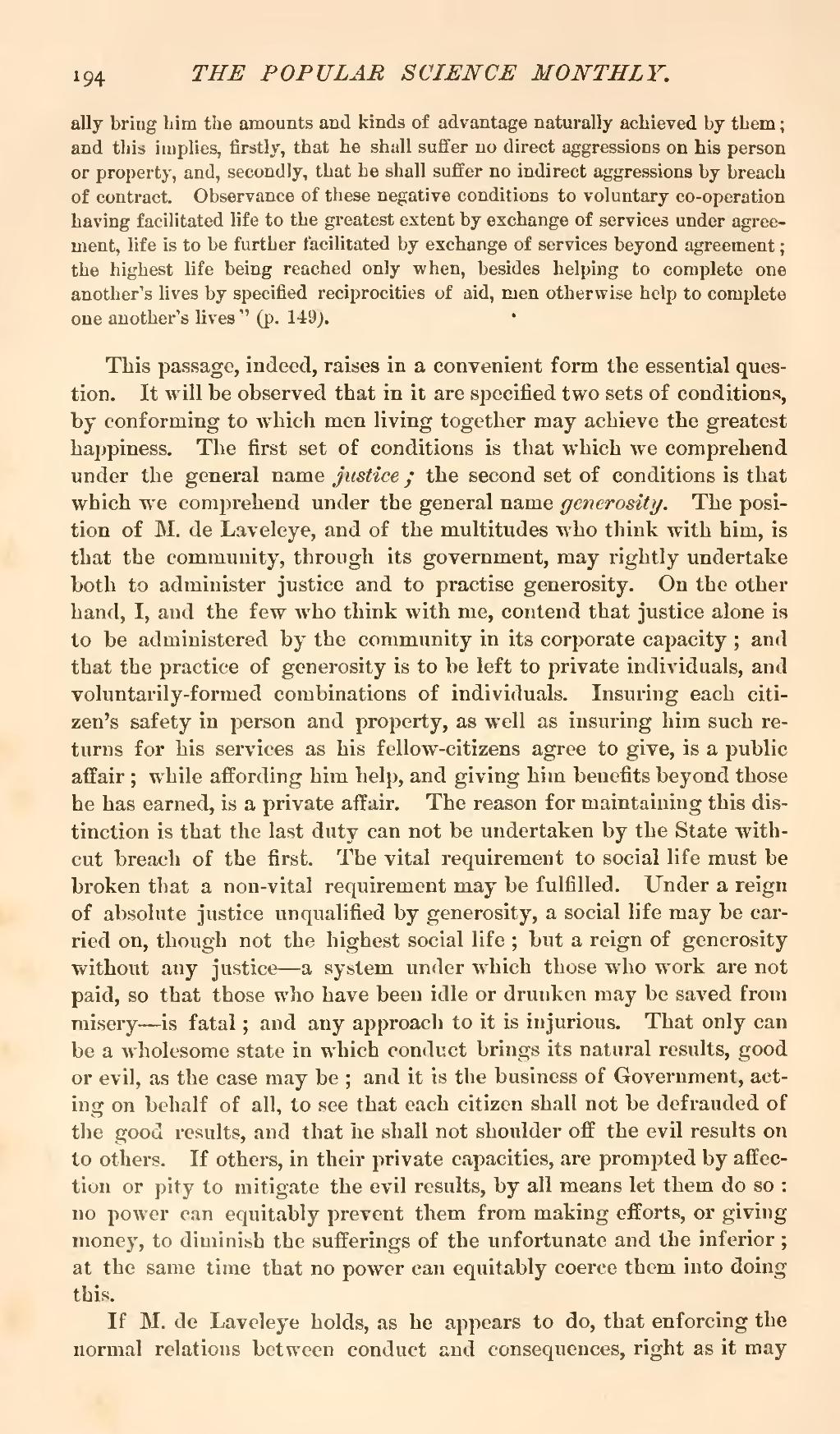This passage, indeed, raises in a convenient form the essential question. It will be observed that in it are specified two sets of conditions, by conforming to which men living together may achieve the greatest happiness. The first set of conditions is that which we comprehend under the general name justice; the second set of conditions is that which we comprehend under the general name generosity. The position of M. de Laveleye, and of the multitudes who think with him, is that the community, through its government, may rightly undertake both to administer justice and to practise generosity. On the other hand, I, and the few who think with me, contend that justice alone is to be administered by the community in its corporate capacity; and that the practice of generosity is to be left to private individuals, and voluntarily-formed combinations of individuals. Insuring each citizen's safety in person and property, as well as insuring him such returns for his services as his fellow-citizens agree to give, is a public affair; while affording him help, and giving him benefits beyond those he has earned, is a private affair. The reason for maintaining this distinction is that the last duty can not be undertaken by the State without breach of the first. The vital requirement to social life must be broken that a non-vital requirement may be fulfilled. Under a reign of absolute justice unqualified by generosity, a social life may be carried on, though not the highest social life; but a reign of generosity without any justice—a system under which those who work are not paid, so that those who have been idle or drunken may be saved from misery—is fatal; and any approach to it is injurious. That only can be a wholesome state in which conduct brings its natural results, good or evil, as the case may be; and it is the business of Government, acting on behalf of all, to see that each citizen shall not be defrauded of the good results, and that he shall not shoulder off the evil results on to others. If others, in their private capacities, are prompted by affection or pity to mitigate the evil results, by all means let them do so: no power can equitably prevent them from making efforts, or giving money, to diminish the sufferings of the unfortunate and the inferior; at the same time that no power can equitably coerce them into doing this.
If M. de Laveleye holds, as he appears to do, that enforcing the normal relations between conduct and consequences, right as it may

